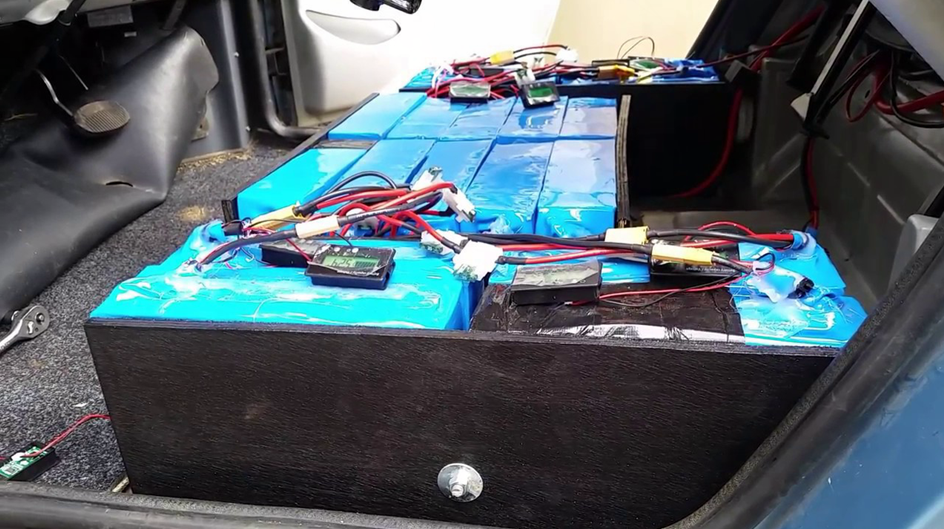China Integration of Smart Grids with Lithium Batteries: Revolutionizing Energy Management
Introduction:
As the global energy demand continues to rise, it has become imperative to explore innovative solutions to meet this growing need sustainably. The integration of smart grids with lithium batteries presents a promising avenue for revolutionizing energy management. This article delves into the potential benefits, challenges, and future prospects of this integration.
1. Benefits of integrating smart grids with lithium batteries:
1.1. Energy storage: Lithium batteries, with their high energy density and long cycle life, offer an efficient solution for storing excess energy generated by renewable sources. This stored energy can be utilized during peak demand periods, enhancing grid stability and reducing reliance on non-renewable energy sources.
1.2. Grid balancing: The fluctuating nature of renewable energy sources poses challenges for grid operators. By integrating lithium batteries into smart grids, surplus energy can be stored during low demand periods and discharged during high demand periods, enabling efficient grid balancing and reducing the need for traditional power plants.
1.3. Demand response: Smart grids equipped with lithium batteries facilitate demand response programs, allowing consumers to adjust their energy consumption based on real-time price signals. This empowers users to make informed decisions, optimize their energy usage, and contribute to a more sustainable energy system.
1.4. Enhanced efficiency: Smart grids integrated with lithium batteries enable efficient two-way communication between consumers and utilities. By providing real-time data on energy consumption, these grids facilitate better load management, voltage control, and fault detection, leading to energy savings and improved system reliability.
2. Challenges to overcome:
2.1. Cost: Despite the declining costs of lithium batteries, their initial investment remains relatively high. Widespread adoption of this integration will require further advancements in battery technology and cost reduction to ensure economic viability for both utilities and consumers.
2.2. Infrastructure: Integrating lithium batteries into existing grid infrastructure necessitates upgrades and modifications to accommodate the unique requirements of energy storage systems. This may involve considerable investments in grid infrastructure, necessitating clear strategies and funding mechanisms.
2.3. Safety and sustainability: Proper handling, disposal, and recycling of lithium batteries are critical to ensure safety and minimize their environmental impact. A comprehensive framework addressing these aspects must be developed to mitigate potential risks and promote sustainable use of lithium batteries.

3. Future prospects and developments:
3.1. Advancements in battery technology: Ongoing research and development efforts are focused on enhancing the performance and durability of lithium batteries. Innovations such as solid-state batteries and battery management systems are expected to further improve energy storage capabilities, efficiency, and safety.
3.2. Integration with renewable sources: The integration of lithium batteries with renewable energy sources like solar and wind power can address the intermittent nature of these sources. This integration can enable reliable and consistent power supply, thereby accelerating the transition to a clean and sustainable energy future.
3.3. Grid-edge solutions: The emergence of distributed energy resources and the Internet of Things (IoT) is paving the way for grid-edge solutions. By integrating lithium batteries at the consumer level, decentralized energy systems can be developed, promoting energy independence and local resilience.
Conclusion:
The integration of smart grids with lithium batteries has the potential to revolutionize energy management by enhancing energy storage, grid balancing, demand response, and overall system efficiency. Despite challenges related to cost, infrastructure, and safety, ongoing advancements in battery technology and renewable energy integration provide a positive outlook for the future. The development of clear strategies and policies, along with continued research and development, will be crucial in unlocking the full potential of this integration and achieving a sustainable energy future.
-
 Lithium batteries have become increasingly popular over the years due to their high energy density and long cycle life. They are now commonly used in various applications such as electric vehicles, portable electronics, and renewable energy systems. In some cases, it may be necessary to connect multiple lithium batteries in series to achieve the desired voltage level. However, there are...Read more
Lithium batteries have become increasingly popular over the years due to their high energy density and long cycle life. They are now commonly used in various applications such as electric vehicles, portable electronics, and renewable energy systems. In some cases, it may be necessary to connect multiple lithium batteries in series to achieve the desired voltage level. However, there are...Read more -
 Introduction: In recent years, the demand for efficient and reliable energy storage solutions has been on the rise. As the world transitions towards renewable energy sources, the need for advanced battery technology becomes increasingly important. One such breakthrough in energy storage technology is the Lithium Iron Phosphate (LiFePO4) battery pack. This article aims to explore the revolutionary advancements and benefits...Read more
Introduction: In recent years, the demand for efficient and reliable energy storage solutions has been on the rise. As the world transitions towards renewable energy sources, the need for advanced battery technology becomes increasingly important. One such breakthrough in energy storage technology is the Lithium Iron Phosphate (LiFePO4) battery pack. This article aims to explore the revolutionary advancements and benefits...Read more -
 Introduction Lithium iron phosphate (LiFePO4) batteries are quickly becoming a popular choice for powering devices and vehicles, particularly electric cars. These batteries are known for their longevity and durability, making them an ideal option for applications that require reliable, long-lasting power. In this article, we will explore the lifespan of LiFePO4 batteries, including factors that impact their longevity and...Read more
Introduction Lithium iron phosphate (LiFePO4) batteries are quickly becoming a popular choice for powering devices and vehicles, particularly electric cars. These batteries are known for their longevity and durability, making them an ideal option for applications that require reliable, long-lasting power. In this article, we will explore the lifespan of LiFePO4 batteries, including factors that impact their longevity and...Read more -
 The High-Capacity 12V 100Ah LiFePO4 Lithium Iron Phosphate Battery is the latest in battery technology. This type of battery is made from lithium iron phosphate, which is a material that provides high performance and long life. It is designed to deliver high capacity and high discharge rates, making it ideal for a wide range of applications. The LiFePO4 battery...Read more
The High-Capacity 12V 100Ah LiFePO4 Lithium Iron Phosphate Battery is the latest in battery technology. This type of battery is made from lithium iron phosphate, which is a material that provides high performance and long life. It is designed to deliver high capacity and high discharge rates, making it ideal for a wide range of applications. The LiFePO4 battery...Read more -
 Industrial battery chargers are essential in powering up your operations efficiently. Whether in a manufacturing plant, warehouse, or distribution center, these chargers provide a reliable source of power for your equipment and tools. With the right charger, you can increase productivity, reduce downtime, and improve safety in your workplace. What are Industrial Battery Chargers? Industrial battery chargers are...Read more
Industrial battery chargers are essential in powering up your operations efficiently. Whether in a manufacturing plant, warehouse, or distribution center, these chargers provide a reliable source of power for your equipment and tools. With the right charger, you can increase productivity, reduce downtime, and improve safety in your workplace. What are Industrial Battery Chargers? Industrial battery chargers are...Read more -
 China Lithium starter battery suppliers can offer a range of benefits to vehicle owners looking for an upgrade from traditional lead-acid batteries. Lithium starter batteries have been gaining popularity in recent years due to their superior performance and durability, and China is quickly becoming a leading supplier of these advanced batteries. Here are some ways in which a China...Read more
China Lithium starter battery suppliers can offer a range of benefits to vehicle owners looking for an upgrade from traditional lead-acid batteries. Lithium starter batteries have been gaining popularity in recent years due to their superior performance and durability, and China is quickly becoming a leading supplier of these advanced batteries. Here are some ways in which a China...Read more -
 On a camping trip that pursues freedom and nature, the reliability of power supply is undoubtedly a key factor affecting the travel experience. Lithium campervan batteries bring unprecedented convenience and comfort to camping enthusiasts with their excellent battery life and lightweight design. Whether it is wild camping, RV travel or adventure activities, it can provide stable and efficient power support...Read more
On a camping trip that pursues freedom and nature, the reliability of power supply is undoubtedly a key factor affecting the travel experience. Lithium campervan batteries bring unprecedented convenience and comfort to camping enthusiasts with their excellent battery life and lightweight design. Whether it is wild camping, RV travel or adventure activities, it can provide stable and efficient power support...Read more

